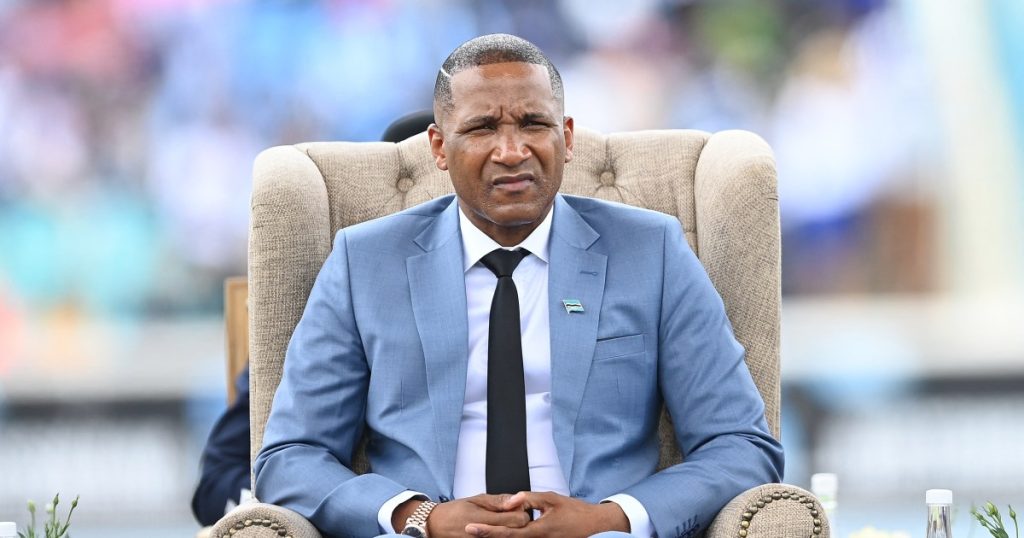Botswana has inaugurated Duma Boko as its new president after his party, the Umbrella for Democratic Change (UDC), won a landslide victory against the Botswana Democratic Party (BDP) that had been in power for nearly 60 years. Boko, 54, took the oath in front of a large crowd at the national stadium just nine days after the election, where the UDC won 36 seats in parliament compared to the BDP’s four seats. Boko emphasized the successful testing of Botswana’s democracy and the ushering in of a new political era in his speech, which was met with cheers from the audience. Former President Mokgweetsi Masisi, who conceded defeat graciously, was present at the ceremony, and Boko commended his predecessor for his statesmanship.
Young voters, comprising about a third of the more than one million registered voters in Botswana, played a significant role in the election that saw the UDC rise to power. Despite being considered one of Africa’s success stories with a stable democracy and significant wealth, Botswana has faced economic challenges due to a decline in demand for diamonds, which make up a large portion of Southern African exports. Concerns such as unemployment, income disparity, and economic diversification were among the reasons voters cited for wanting change after years of BDP rule. Masisi’s administration was also criticized for mismanagement, nepotism, and corruption, further fueling the desire for a new direction under Boko’s leadership.
Boko has outlined plans to stabilize relations with partners in the diamond industry and reduce Botswana’s dependence on the global diamond market as a key priority for his government. Diversifying the economy to reduce reliance on diamond revenues, which have been impacted by declining sales, is crucial for ensuring long-term stability and growth in Botswana. The country’s reputation as a beacon of democracy in Africa was highlighted by Boko, who praised the example set by Botswana and called for unity and cooperation in the nation’s political landscape.
The peaceful transition of power from the BDP to the UDC marks a significant moment in Botswana’s history, signaling a shift towards a new era of governance and leadership under Boko’s presidency. The magnitude of the UDC’s victory and the support it received from a diverse range of voters, including young people seeking change, underscores the desire for a fresh approach to addressing the country’s challenges. By acknowledging the shortcomings of the previous government and pledging to address key issues such as economic diversification and governance reforms, Boko aims to bring about positive change and progress for Botswana’s citizens.
As Boko assumes the presidency and sets out to implement his government’s agenda, the focus on inclusive growth, good governance, and sustainable development will be crucial in advancing Botswana’s prosperity and well-being. The international community will be closely watching the country’s progress under the new leadership, with hopes for continued stability, democratic values, and economic resilience. Boko’s commitment to upholding democratic principles, fostering unity, and prioritizing the needs of the people will be essential in steering Botswana towards a brighter future and fulfilling the aspirations of its citizens for a more prosperous and equitable society.













